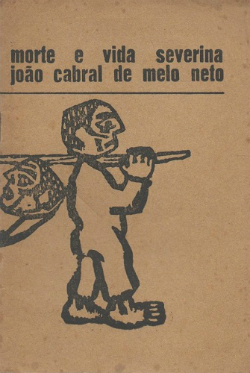Aeneid is a great epic poem that was written in the 1st century BC. Ç. by the Roman poet Virgil and published after his death in 19 a. Ç. He wrote the work for 12 years.
Eneida is considered a classic of world literature that inspired several later poets such as Dante Alighieri and Luís de Camões.
the narrative
Aeneid tells the story of Rome, from the origin, power and expansion of the Roman Empire. The work receives this name since it is related to the exploits and deeds performed by the Trojan hero: Enéas.
Aeneas (or Aeneas), the protagonist of the work, was a Trojan survivor of the Trojan War. Therefore, he is considered a mythical hero who fought in the siege of Troy against the Greeks. Even though he is human, he was seen by many as a demigod.
In Carthage, Eneas is received by Dido, queen of Carthage, who ends up falling in love with him.
Eneas narrates the Trojan War to Dido and how he managed to flee with his father and son by order of the goddess venus.
During a hunt, there was a big storm. At that moment, Dido and Eneas took shelter in a cave and made love there.
After the event, Eneas receives a message from the God Jupiter that reveals his destiny. He needed to leave Carthage and found a city in the region of Lazio. The central idea was to replace the razed city of Troy.
He tries to flee the city without the queen noticing. However, Dido sees the ships leaving the city and ends up committing suicide.
Upon arriving in the region of Lazio, the Latin king offers him an alliance and the hand of his daughter. However, this generates great controversy especially in Turnus, who loved Lavinia, the king's daughter.
Turno tries to hit the Trojans by surrounding the camp and setting fire. With the help of the god Neptune, the fire is put out.
After this event, there is a fight between Turno and Eneas, which ends with Turno's death. Finally, Enéas founds a Trojan colony in Lazio and marries Lavinia. During his rule he managed to unite the Romans and the Trojans.
Know more:
- Roman Mythology
- Trojan War
- Ancient Rome
Structure of the Work
Aeneid was written in Latin, in verse and in a unique meter. That is, with six groups of three syllables, two short and one long. This type of metric is called a dactylic hexameter.
Virgílio produced it that way, since the sound of the epic included a rhythmic scheme to be read aloud. He was inspired by the classic Greek epics of the poet Homer: the works Iliad and Odyssey.
As for the structure, the work consists of 12 books (or chapters), also called chants.
How about finding out more about the Epic Genre and the Epic?
Characters of the Work
Aeneid is made up of several characters, who are both human and god.
Humans
- Eneas: Trojan, protagonist of the story.
- Ascanius: son of Éneas.
- Anchises: father of Éneas.
- Dido: Queen of Carthage.
- Shift: enemy of Éneas.
gods
- Apollo: son of Zeus and twin brother of Artemis. He is the sun god and protector of the arts.
- Venus: goddess of love and beauty.
- Aeolus: son of Hipotas. He is the god of winds.
- Jupiter: the “father of the gods”. He is the god of the skies, rain, light and lightning.
- Juno: woman of Jupiter. She is goddess of the gods and protector of marriage and children.
- Mercury: messenger god of commerce, roads and eloquence.
- Neptune: son of the god Saturn. He is the god of the seas.
Learn more about Roman gods.
Excerpts from the Work
To learn more about the language and structure of the Eneida, check out an excerpt from each book below:
Book I
"I, who sang in the thin avena
Rude songs, and coming from the forests,
I made the neighboring farms content
The settler's greed, grateful company
To the villagers; from mars now the horrible
Weapons corner, and the man who, from Troy
Profugo, to Italy and from Lavino to the beaches
Fado first brought him."
Book II
"Ready, listening, everyone was silenced,
While exorting Father Aeneas
From the exalted torus: — You send me, O queen,
Renew the childhood pain; how the Danaos
D’llius the might and the pitiful kingdom
Defeated; miseries I really saw
And in which I was a big part.”
Book III
"After the gods in harm's way overthrew
Asia and the First Nations, lofty walls
And Ilio the neptunia in smoke solving,
Searching us sweated heavenly warning
Various exiles and desert climates;
And on the Phrygian Ida, at the foot of the same Antandro
We made the ships of uncertain fate,
Of the course and landing.”
Book IV
"Already pierced, in veins it creates the wound,
And the queen dies in blind fire.
The hero's high worth, his high origin
Revolves; stamped in the soul the gesture and the speeches;
Care does not sleep, does not rest.
The white beats from the pole at slow night,
Shining the world the febeian lamp;
Crazy to the confidant sister then explains:
"Suspended, what visions, Ana, terrify me?"
Book V
"Firm the hero already drives the fleet in half,
With Aquila carving the black waves;
Look back, and poor Elisa's walls
On fire sees glowing. The cause of the Teucros
From so much fire they find it strange; but they know
Polluted love as it hurts, what dares
Female anger, and sad omen take away.”
Book VI
“So he mourns, and at the ships he gives up the reins;
One goes to Cumas euboica and tame approaches.
Tenacious tooth anchors them; off prom,
And the stern curves cover the river.
Young men on the Hesperian beach jump out:
Who flame seeds in siliceous
Catalyst veins; who, densely alverbs the beasts,
The jungle sweeps away, and the rivers show findings.”
Book VII
“You no less, Caieta loves Aeneas,
Our beaches dying you eternalized;
Keep your name, and if this is glory,
In the magna Hesperia the bones mark you.”
Book VIII
"Bad turn, the hoarse horns clattering,
Flags hoist on the laurent fortress,
And the brutes drown and incite the weapons,
Lazio revolts in trepidation
Conjures himself, and roars the youth."
Book IX
"However, from a distance this happens,
The Saturnia of Olympus Iris dispatches
The bold shift: that in a valley and sacred forest
Grandfather Pilumno happened to rest."
book X
"From hand to hand the omnipotent Olympus,
Council the divine father and king of men
Flame to the cut side; exalted the lands
Ribbon and the Trojan field and the Lazio peoples.”
Book XI
“The dawn was already coming from the ocean.
Well, let the time come to burrow your dead
And the turb the funeral, in the cousin and oo
Merciful the winner fulfilled the vows.”
Book XII
"Barely soaks, enraged the hero voices:
"What! you will escape me from my prey...
In this wound you immolate Palante,
Palante takes revenge on your wicked blood.”
In the chest here hides the ironic iron:
Ice the organs solves it, and in a moan
The indignant soul sank into the shadows.”
Did you know?
This classic of the Latin language had great importance in Roman education, since it was used to instruct many young people of the time.


